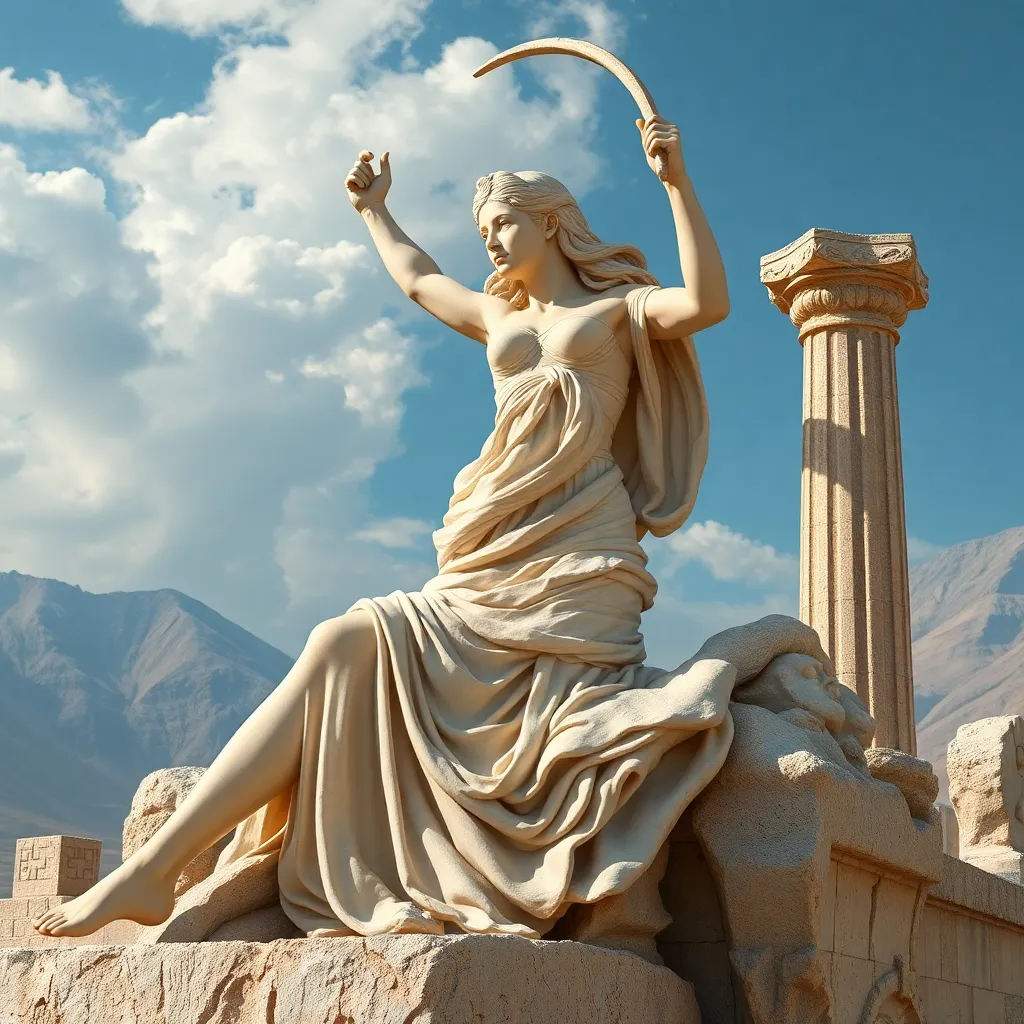The Influence of Artemis on Ancient Greek Philosophy
I. Introduction
Artemis, one of the most revered deities in ancient Greek mythology, embodies the complexities of nature, femininity, and moral integrity. As the goddess of the hunt, wilderness, and childbirth, she holds a significant place in the pantheon of Greek gods. Her multifaceted character has not only influenced mythological narratives but has also permeated various aspects of ancient Greek philosophy.
Philosophy in ancient Greece served as a foundation for understanding the world and humanity’s place within it. Thinkers like Plato and Aristotle sought to explore the nature of existence, ethics, and knowledge. This article aims to delve into the intersection of Artemis and philosophical thought, illuminating her influence on the ethical, metaphysical, and gender-based discussions that shaped ancient Greek philosophy.
II. The Role of Artemis in Greek Mythology
Artemis is characterized by her fierce independence and protective nature. As the daughter of Zeus and Leto, and the twin sister of Apollo, she represents both nurturing qualities and untamed wildness. Her attributes include:
- Goddess of the hunt and wilderness
- Protector of young women and childbirth
- Symbol of purity and chastity
Notably, Artemis embodies a duality in her persona: she is both the protector of those who seek her favor and a fierce avenger against those who offend her. This duality reflects the complexities of nature itself, further intertwining her with philosophical inquiries into the essence of existence.
III. Artemis and the Philosophical Concept of Nature
The relationship between Artemis and the natural world is profound, as she is often depicted in harmony with nature, commanding respect and reverence for the wilderness. Ancient philosophers, particularly pre-Socratic thinkers like Heraclitus and Anaximander, drew inspiration from natural phenomena and deities like Artemis to construct their philosophical ideas.
For instance:
- Heraclitus posited that change is fundamental to the universe, a concept that resonates with the cyclical aspects of nature that Artemis represents.
- Anaximander’s notion of the “apeiron” (the infinite) can be seen as a reflection of the boundless wilderness that Artemis governs.
In this way, nature was often viewed as a reflection of divine order, guiding philosophical thought toward understanding the interconnectedness of all things.
IV. The Ethical Perspectives Associated with Artemis
Artemis’s identity as the goddess of purity and chastity has significant implications for virtue ethics, particularly in the works of philosophers like Plato and Aristotle. Her attributes embody ideals of moral integrity and self-control.
In examining the ethical perspectives associated with Artemis:
- Plato’s theories on virtue often aligned with the qualities that Artemis represents, emphasizing the importance of moderation and the pursuit of the good life.
- Aristotle’s concept of the “Golden Mean” reflects Artemis’s balanced nature, suggesting that virtue lies between extremes.
The integration of Artemisian values into discussions of morality highlights the goddess’s influence on the ethical frameworks that governed ancient Greek thought.
V. Artemis and Feminine Philosophical Thought
The representation of women in philosophy has historically been limited, yet Artemis stands as an archetype of female empowerment and independence. Her character challenges traditional gender roles and offers a powerful symbol for women’s autonomy.
In this context:
- Artemis inspires later philosophical discussions about gender, ethics, and the role of women in society.
- Her independence and strength resonate with feminist philosophical inquiries, celebrating the potential of women as powerful agents of change.
Thus, Artemis’s legacy extends beyond mythology, influencing the evolution of feminine thought in philosophical discourse.
VI. The Influence of Artemis on Hellenistic Philosophers
The transition from Classical to Hellenistic philosophy saw a shift in focus from metaphysical inquiries to more practical concerns, including ethics and personal well-being. Artemis’s role in this period is significant, as her principles were embraced by both Stoic and Epicurean philosophers.
Key points include:
- In Stoicism, Artemis represents the natural order and the importance of aligning oneself with nature to achieve tranquility.
- Epicureanism, with its emphasis on pleasure and the avoidance of pain, also reflects Artemis’s duality, celebrating both the beauty of nature and the necessity of respecting its boundaries.
This connection between divine influence and human ethics highlights the enduring relevance of Artemis in philosophical thought.
VII. Comparative Analysis: Artemis and Other Deities
When comparing Artemis to other major Greek deities, such as Apollo and Athena, distinct philosophical implications emerge. Each goddess embodies different aspects of life and morality:
- While Apollo represents reason and harmony, Artemis’s focus on nature and independence offers a counterbalance that emphasizes the importance of primal instincts and raw emotion.
- Athena, the goddess of wisdom, complements Artemis but also underscores different virtues, such as strategy and warfare, highlighting the diverse aspects of femininity in Greek mythology.
Moreover, cross-cultural influences from neighboring mythologies illustrate how Artemis’s characteristics align with and differ from other female deities, enriching the philosophical landscape of the time.
VIII. Conclusion
In summary, Artemis’s influence on ancient Greek philosophy is both profound and multifaceted. Her attributes as a protector, symbol of purity, and embodiment of nature have significantly shaped philosophical discourse on ethics, gender, and the natural world. The legacy of Artemis endures, offering valuable insights into contemporary philosophical discussions about morality and the role of women in society.
Reflecting on these themes, we recognize that the intersection of mythology and philosophy continues to resonate, inviting further exploration into the complex relationships between the divine, nature, and humanity.




